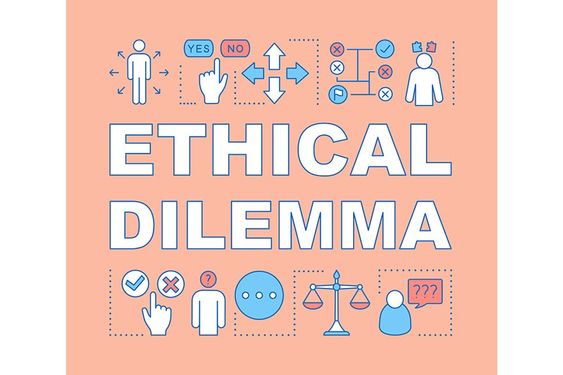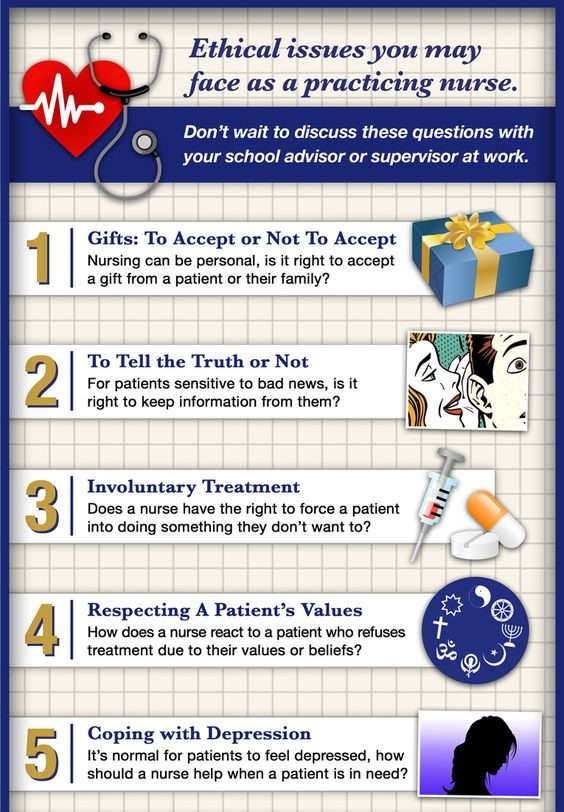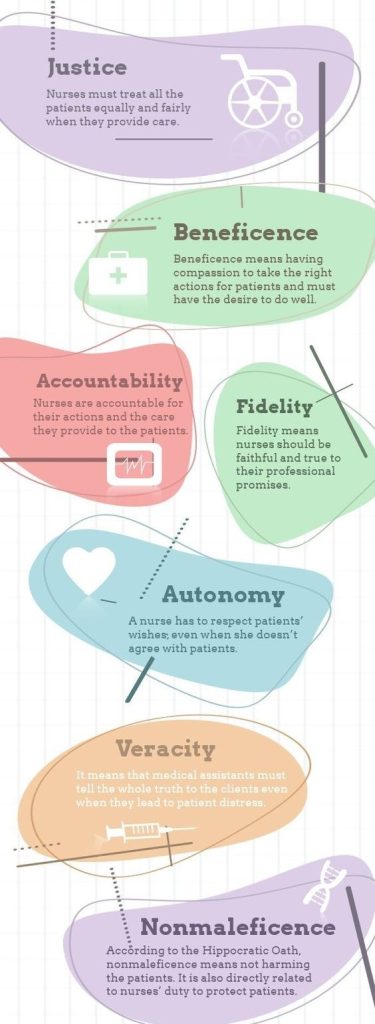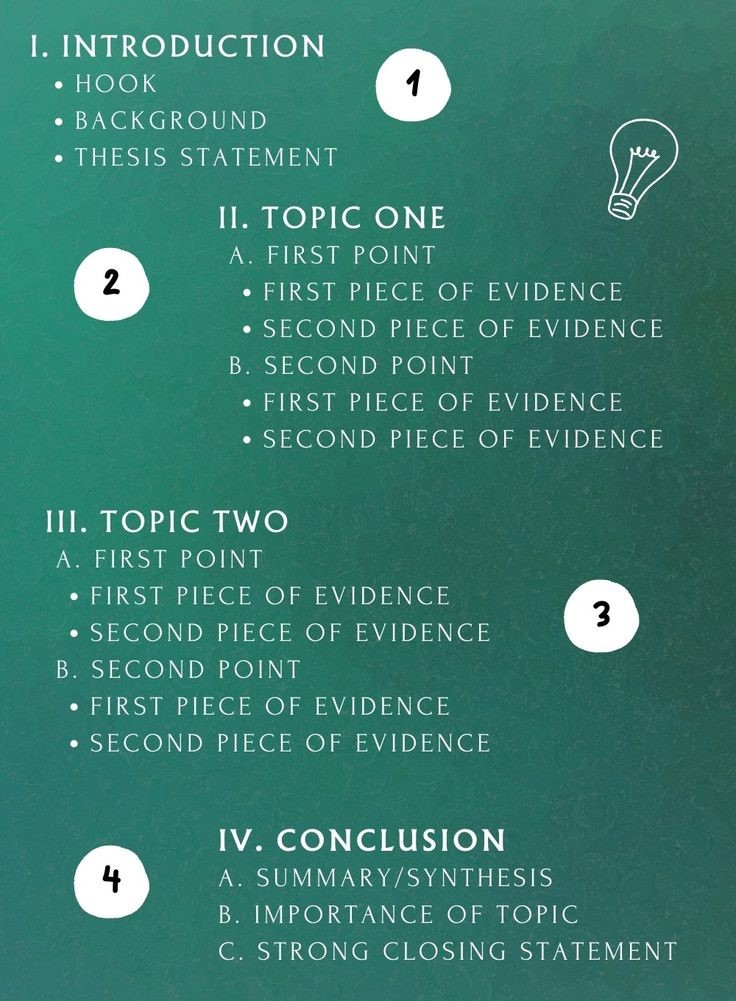
Table of Contents
The nursing profession is a tapestry woven with threads of compassion, skill, and unwavering commitment to patient well-being. However, this noble path often leads nurses to face complex ethical dilemmas that challenge their values and force them to make difficult decisions. Writing a nursing essay on ethical dilemmas is an opportunity to explore these challenges, analyze the moral complexities involved, and demonstrate your critical thinking skills as a future healthcare professional.
This comprehensive guide will equip you with the tools and knowledge you need to craft a compelling and insightful nursing essay on ethical dilemmas. We’ll delve into the key aspects of crafting a strong argument, exploring real-world scenarios, and showcasing your understanding of ethical principles in a nursing context.
Understanding Ethical Dilemmas in Nursing
The nursing profession is built upon a foundation of ethical principles, guiding practitioners to provide compassionate and competent care. However, the complex realities of patient care often present nurses with ethical dilemmas, forcing them to grapple with difficult decisions and conflicting values. These dilemmas are not merely theoretical exercises; they represent real-life situations that demand careful consideration and thoughtful action.
Nursing essay on ethical dilemmas often explore the multifaceted nature of these challenges, analyzing the ethical frameworks and principles that inform decision-making in the clinical setting. One common dilemma revolves around patient autonomy versus paternalism. For example, a patient may refuse life-sustaining treatment, while the nurse believes it is in their best interest to receive it. This conflict raises fundamental questions about the limits of individual autonomy and the role of the nurse in advocating for patient well-being.

Another ethical dilemma frequently encountered in nursing essay on ethical dilemmas involves resource allocation and the equitable distribution of limited resources. Nurses may face situations where they must prioritize care for one patient over another, perhaps due to limited staffing or medical supplies. This dilemma highlights the ethical principle of justice, requiring nurses to make difficult choices while ensuring fairness and impartiality.
Furthermore, a nursing essay on ethical dilemmas often delves into the issue of truth-telling and informed consent. Nurses may be faced with disclosing a diagnosis or prognosis that may be upsetting to a patient, or they may encounter situations where a patient’s family requests information be withheld. These situations require nurses to balance the patient’s right to know with the potential for emotional distress.
Finally, a good nursing essay on ethical dilemmas also addresses the complexities of confidentiality and privacy. Nurses are bound by professional ethics to protect patient information, yet they may encounter situations where disclosing confidential information is necessary to protect the patient or others. This dilemma raises questions about the balance between patient privacy and the potential benefits of disclosure.
In conclusion, nursing essay on ethical dilemmas provide a valuable platform for examining the ethical challenges faced by nurses in their daily practice. By engaging with these dilemmas, nurses can enhance their critical thinking skills, develop their moral compass, and strive to provide ethical and compassionate care to their patients.
Strategies for Writing a Nursing Essay on Ethical Dilemmas
1. Choosing the Right Dilemma
The first step in writing a successful nursing essay on ethical dilemmas is selecting a relevant and impactful topic. Avoid generic dilemmas that have been extensively discussed. Instead, focus on a specific scenario that resonates with you and offers a unique perspective. Here are some strategies for choosing the right ethical dilemma.
- Personal Experience: Reflect on your experiences in clinical settings or during your nursing education. Did you witness a situation that raised ethical concerns?
- Current Events: Analyze recent healthcare news or ethical debates that highlight pressing issues in the field.
- Literature Review: Explore research articles and journals that discuss ethical dilemmas faced by nurses. You might find a case study or a particular scenario that sparks your interest. Established academic writing websites such as PhD Nurse Writer provide scholarly nursing articles and case studies that you can use for inspiration.
Remember, the ideal nursing essay on ethical dilemmas should be grounded in real-world scenarios and offer a fresh perspective on a topic that matters.
2. Defining the Ethical Dilemma

Once you’ve chosen your dilemma, clearly define the ethical issues at play. Explain the conflicting values and principles that contribute to the dilemma. For example, consider a scenario where a patient refuses a life-saving blood transfusion based on religious beliefs. This dilemma pits the nurse’s duty to provide care against the patient’s right to autonomy. Clearly articulating these conflicting values sets the stage for a nuanced discussion.
3. Exploring Different Ethical Frameworks
The strength of your nursing essay on ethical dilemmas lies in your ability to analyze the situation through various ethical frameworks. These frameworks provide different lenses through which to understand the complexities of the dilemma. Some commonly used frameworks include:
- Utilitarianism: This framework focuses on maximizing overall happiness and minimizing harm. In the blood transfusion example, a utilitarian approach might argue for the transfusion to preserve the patient’s life, even if it goes against their religious beliefs.
- Deontology: This framework emphasizes moral duties and principles, arguing that certain actions are inherently right or wrong, regardless of their consequences. A deontological approach might prioritize the patient’s right to autonomy and refuse the transfusion.
- Virtue Ethics: This framework focuses on character traits and moral virtues. A nurse guided by virtue ethics would strive to act with compassion, integrity, and beneficence, considering all factors in the situation.
By applying multiple ethical frameworks, you demonstrate a comprehensive understanding of the dilemma and its potential solutions.
4. Analyzing the Stakeholders:
Every ethical dilemma involves various stakeholders with differing perspectives and interests. In the blood transfusion example, stakeholders include the patient, the nurse, the physician, the patient’s family, and potentially the hospital administration. Analyze each stakeholder’s perspective, including their values, beliefs, and potential motivations in the situation.
5. Exploring Potential Solutions:
A strong nursing essay on ethical dilemmas doesn’t just identify the problem; it offers potential solutions. Analyze different courses of action and their potential consequences. Consider the ethical implications of each solution, as well as its practical feasibility in a real-world setting.
6. Reflecting on Personal Values:

Your nursing essay on ethical dilemmas should reflect your own moral compass. What would you do in this situation? What values guide your decision-making process? Be honest and introspective, acknowledging any personal biases or beliefs that might influence your perspective. This self-reflection adds depth and authenticity to your essay.
7. Drawing Ethical Conclusions:
Finally, draw conclusions based on your analysis. What is the most ethically sound solution to the dilemma? What ethical principles should guide nurses in similar situations? Your conclusion should be clear, concise, and well-supported by your evidence and arguments.
8. Practical Considerations:
While your nursing essay on ethical dilemmas focuses on the theoretical aspects of ethical decision-making, it’s important to consider practical implications. How would you navigate these challenges in a real-world setting? What resources are available to help nurses make ethical decisions?
9. Supporting Your Argument with Evidence:
A strong nursing essay on ethical dilemmas requires compelling evidence to support your claims. Cite relevant sources, including nursing ethics codes, legal precedents, and research studies. Using credible sources strengthens your argument and demonstrates your understanding of the complexities involved.
10. Writing Style and Structure:
The structure and writing style of your nursing essay on ethical dilemmas are crucial for conveying your ideas effectively. Follow a clear and logical format, using headings and subheadings to organize your content. Write in a professional and objective tone, avoiding emotional language or personal opinions that detract from the analytical nature of the essay.

Here are some additional tips for crafting a stellar nursing essay on ethical dilemmas:
- Use specific examples: Instead of relying on abstract concepts, illustrate your points with real-world scenarios.
- Show, don’t tell: Use vivid descriptions and engaging storytelling to paint a clear picture of the ethical dilemma and its implications.
- Be objective and unbiased: Present all sides of the argument fairly, even if you disagree with them.
- Proofread carefully: Ensure your essay is free of grammatical errors and typos.
Examples of Ethical Dilemmas in Nursing
Patient Advocacy & Confidentiality:
- Disclosure of a patient’s HIV status to their partner without consent. This dilemma weighs the patient’s right to privacy against the potential harm to their partner.
- A patient refuses life-sustaining treatment, but their family insists on it. This raises questions about patient autonomy, informed consent, and the role of the nurse as patient advocate.
- Reporting suspected child abuse when the parent refuses to cooperate. Balancing the child’s safety with respecting parental rights is a complex issue.
- Sharing personal information about a patient with other healthcare professionals without their consent. This dilemma centers on patient confidentiality and the need for information sharing for effective care.
Resource Allocation & End-of-Life Care:
- Prioritizing care for one patient over another when resources are limited. This raises ethical questions about fairness, justice, and the value of life.
- Withholding or withdrawing life-sustaining treatment for a patient with a terminal illness. This involves balancing the patient’s wishes with the desire to relieve suffering and avoid prolonging a dying process.
- Euthanasia and assisted suicide. This raises fundamental questions about the right to die, the role of the nurse in ending life, and the potential for abuse.
Professional Boundaries & Dual Relationships:
- Engaging in a romantic relationship with a patient. This presents a clear conflict of interest and can compromise the nurse-patient relationship.
- Accepting gifts or favors from patients. This can create a sense of obligation and compromise the nurse’s professional objectivity.
- Providing care for a family member or friend. This can lead to potential bias in decision-making and difficulty maintaining objectivity.
Truthfulness & Deception:
- Withholding information from a patient about their diagnosis or prognosis. This can raise questions about paternalism and the patient’s right to know.
- Misleading a patient about their treatment plan or prognosis. This can erode trust and undermine the therapeutic relationship.
- Fabricating documentation or falsifying records. This can have serious consequences for both the nurse and the patient.
Technology & Advancements:

- The use of artificial intelligence in patient care. This raises questions about the role of nurses, the impact on patient-nurse relationships, and the potential for bias in AI algorithms.
- The use of social media in nursing practice. This can create ethical dilemmas related to patient privacy, professional boundaries, and the potential for inappropriate sharing of information.
- The use of genetic testing in healthcare. This raises questions about informed consent, privacy, and the potential for discrimination based on genetic information.
It is important to remember that ethical dilemmas are complex and often involve multiple perspectives. Nurses must be prepared to analyze these situations carefully, consider all relevant factors, and make decisions that are consistent with their professional values and the best interests of their patients.
Writing a nursing essay on ethical dilemmas is a valuable exercise that helps you develop your critical thinking skills, ethical reasoning, and understanding of the moral complexities of the nursing profession. By following these guidelines, you can craft a compelling and insightful essay that showcases your knowledge and ability to navigate the moral maze of healthcare.
Professional Help with Writing a Nursing Essay on Ethical Dilemmas
At Nursing Papers, we understand that writing a nursing essay on ethical dilemmas can be an overwhelming endeavour to most students. Instead of panicking, let our writers handle the assignments on your behalf. We guarantee an original and compelling nursing essay, customized to your specific instructions and goals. Besides essays, we can also help you with writing nursing research papers, case studies, theses and dissertations.







